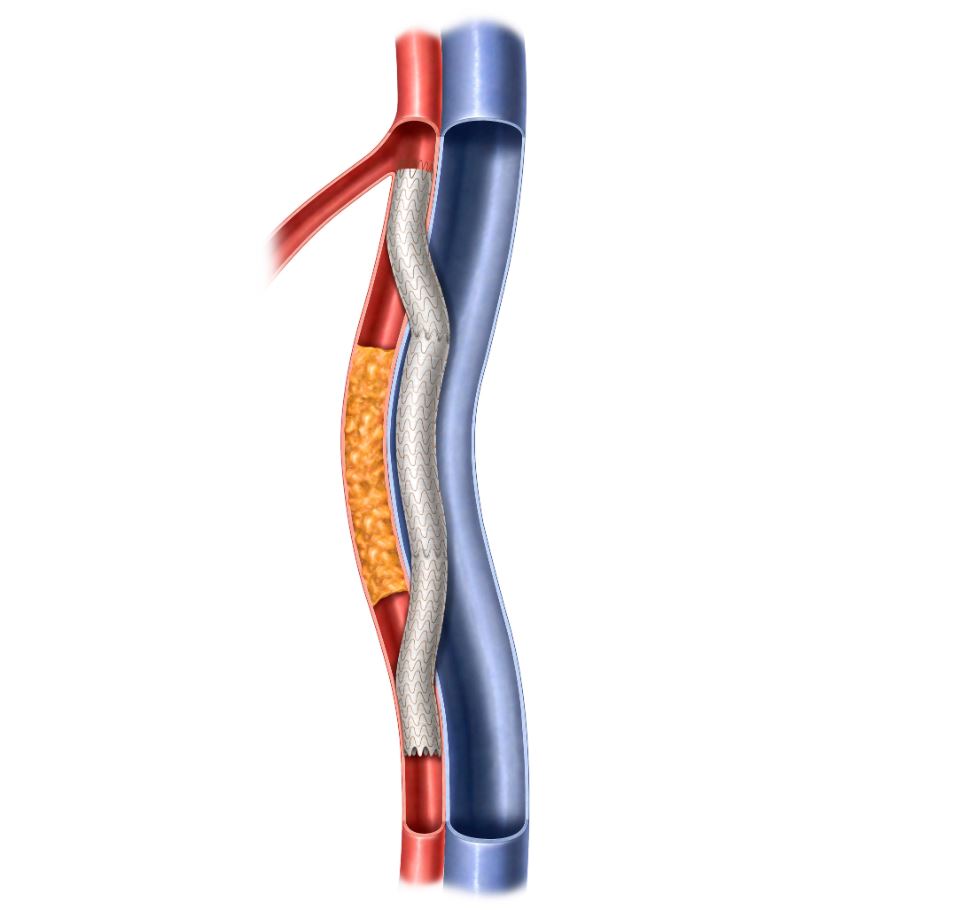First in San Antonio: New procedure to treat complex (PAD) Peripheral Artery Disease is performed at Northeast Baptist Hospital
Sep 17, 2024Northeast Baptist Hospital is the first hospital in San Antonio to perform a brand new procedure to treat patients with complex lower-extremity Peripheral Artery Disease (PAD). Christopher Busken, M.D., vascular surgeon with the Baptist Medical Network, performed San Antonio’s first successful Percutaneous Transmural Arterial Bypass (PTAB) with the DETOUR™ System this September at the hospital. The timing couldn’t be more rewarding for both the surgeons and the patients benefiting from this new procedure as September is Peripheral Artery Disease Awareness Month.

The DETOUR System, which earned Breakthrough Device Designation from the FDA in 2020 and recently received approval from the FDA in June 2023, is designed specifically for patients with severe PAD in the superficial femoral artery (SFA). These patients include those who have long obstructions in the SFA, those with previously failed endovascular procedures, and those who may not be good candidates for surgical bypass. The DETOUR™ System bypasses lesions in the superficial femoral artery by using stents routed through the femoral vein to restore blood flow to the leg.
The DETOUR™ System consists of the ENDOCROSS™ Device and the TORUS™ Stent Graft. Under fluoroscopic guidance, TORUS™ Stent Grafts are placed from the femoral artery to the popliteal artery by way of the femoral vein. By using the femoral vein as a conduit, the diseased SFA is bypassed, allowing perfusion below the obstruction. Patients benefit from the safety of the procedure with less complication risk and a shortened hospital stay of only one day so they can return to daily living sooner.

“We are committed to providing the latest treatment options for our patients with PAD,” Dr. Busken said. “We are excited to now offer PTAB in San Antonio right here at Northeast Baptist Hospital. This new procedure will help provide another safe and effective treatment option for patients needing an alternative to traditional PAD treatments,” Dr. Busken said.
Peripheral artery disease (PAD) affects about 8.5 million adults over the age of 40 in the United States. PAD is the narrowing of the arteries that carry blood away from the heart to other parts of the body. The most common type is lower-extremity PAD, in which blood flow to the legs and feet is diminished. Left untreated, PAD may increase a person’s risk for coronary artery disease, heart attack and stroke. Those with Type 2 diabetes and PAD are at an increased risk for losing a limb.
- To learn more about how the PTAB procedure works, visit https://p.allego.com/ZgQNtIZfwUwNwHZ?ct=gwys8sPF8cg.
- For more information about Baptist Health System’s cardiovascular services, visit https://www.baptisthealthsystem.com/services/cardiovascular.

